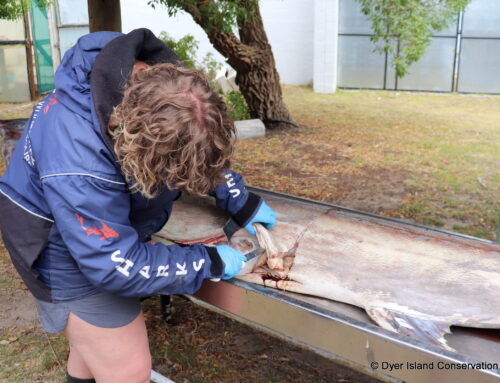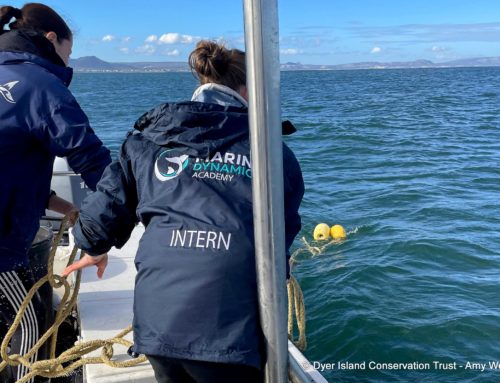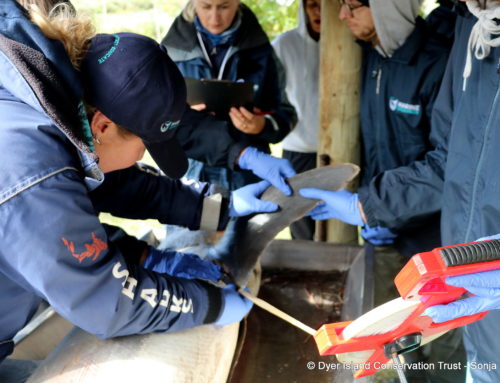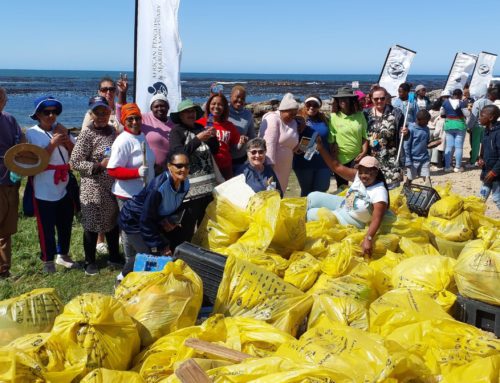Bottlenose Dolphin stranding at Romansbaai
May 26, 2015 by dyertrust
Bottlenose Dolphins are a common sight along the Overstrand coastline of South Africa. A welcome sight to tourists from all over with world, there is very few things as spectacular as seeing a pod of Dolphins playing the surf.
On Friday the 21st of May a juvenile Bottlenose Dolphin (Tursiops truncatus) washed up in Romansbaai, on the western side of the Danger Point peninsula from Kleinbaai.
The animal was found deceased at 1pm by a local fisherman, Pikkie Smal.
The Dyer Island Conservation Trust team were notified immediately, and the stranding team was activated to photodocument this incident, and do the necessary data capturing to the add this to the valuable research database of strandings of cetaceans and mega fauna across South Africa. Taking their stranding kit along, with a team of international volunteers to take measurements and samples, Alison Towner – Marine Biologist for the DICT – set off to Romansbaai.
Stranding events like this are sad, but these opportunities do present us an opportunity to gather important information fundamental to our understanding of aquatic mammal physiology and behavior in South Africa. Says Towner.
The cause of death could not be determined, the dolphin had a few superficial wounds but no obvious signs of trauma such as boat injuries or shark bites. The species is capable of following their prey very shallow, in some parts of the world they almost beach themselves to gorge on fish. It is possible the youngster could have separated from its pod and followed its prey species too shallow.
The site it was found is known as the hole by local fishermen and has notoriously powerful currents. There has also been sightings of transient orcas (Killer whales) off the coast recently, which are known to aggressively chase and hunt dolphins. It is difficult to say without solid evidence we can only speculate, a full necropsy and tissue samples would provide more information says Alison. The data is archived and utilized by the Marine Mammal Unit (MMI) in Cape Town.
The DICT are very thankful to Pikkie Smal for notifying the DICT and to Romansbaai abalone farm for permitting our team to attend the stranding.








